TL;DR: Imagine if Beethoven, Mozart, Tchaikovsky, and Liszt said, "Screw it, let's start a band," in today's world. Not with dusty old pianos, but with electric axes, thumping bass, and killer beats. They'd be making history, cranking out a classical-rock fusion that would blow minds and speakers. This is the ultimate "what if" that makes you want to crank the volume to eleven and rock out with your classical out.
Imagine this: It’s 2024, and the hottest act topping the charts isn't some auto-tuned pop star or a mumble rapper with face tattoos. No, the world is losing its collective mind over a band of dudes who've been dead for a couple of centuries. I'm talking about the OG maestros of music—Beethoven, Mozart, Tchaikovsky, and Liszt—resurrected and rocking the hell out in the 21st century.
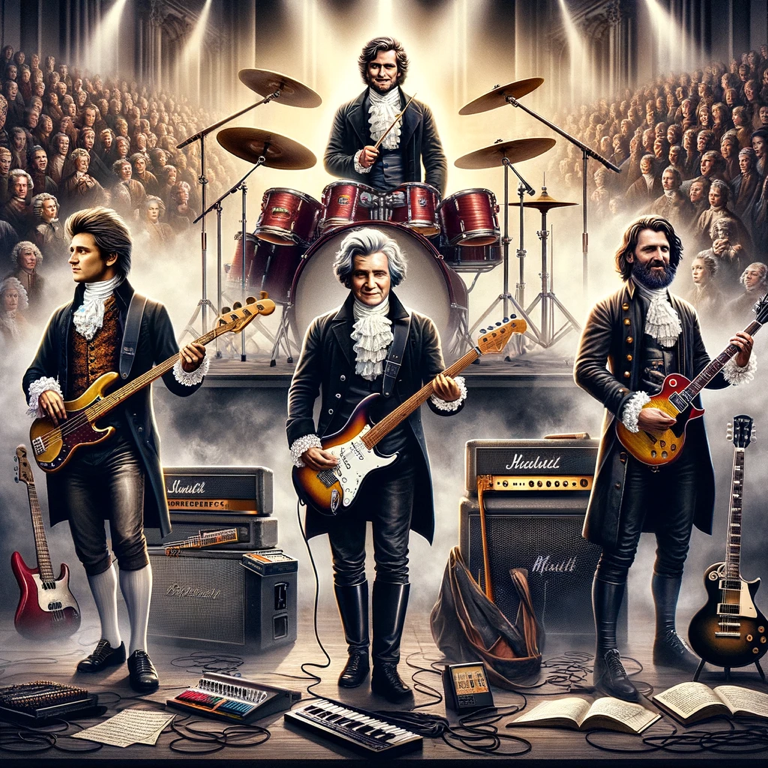
Picture Beethoven, the original bad boy of classical music, slapping the bass like it owes him money. This guy took on deafness and won; you think he’d shy away from an electric bass? Hell no. He'd be laying down lines so heavy they'd rattle your ancestors.
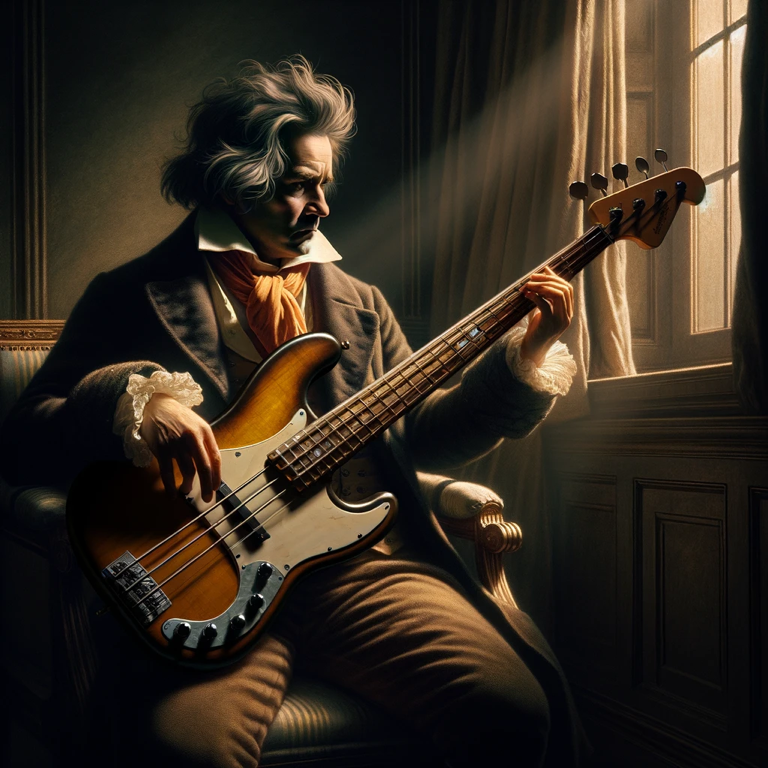
Now throw Mozart into the mix. This wunderkind would be shredding the electric guitar, spitting out solos that would make Hendrix look up from his celestial jam session. Mozart was a beast on the keyboard, sure, but give this prodigy a Stratocaster and he'd set the strings on fire.
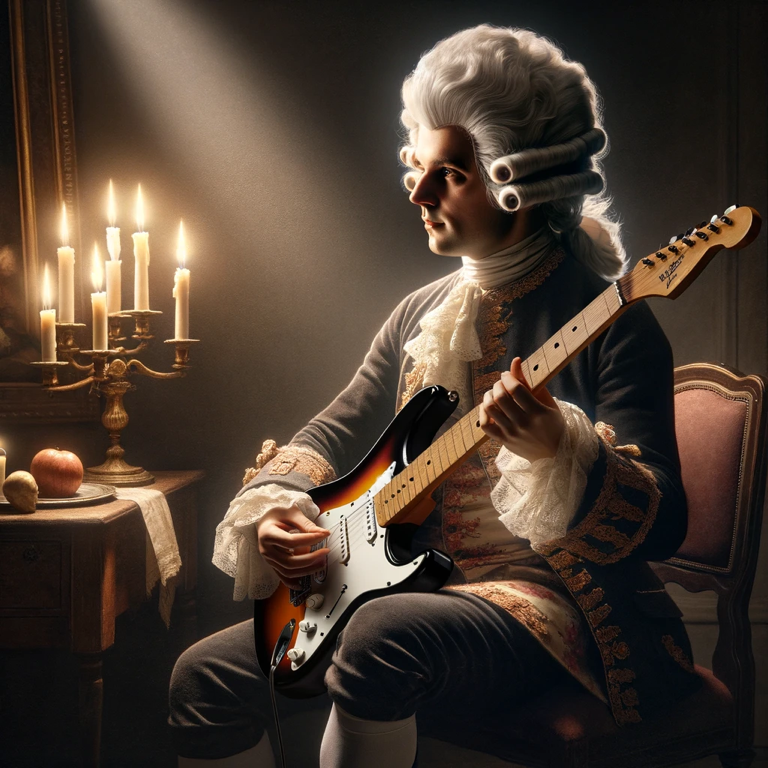
And let's talk Tchaikovsky. Can you see this Russian powerhouse behind a drum kit? The man who brought us cannons in the “1812 Overture” would be dropping beats so hard they'd register on the Richter scale. He'd turn every concert into a pyrotechnic extravaganza without a single firework—just pure percussive passion.
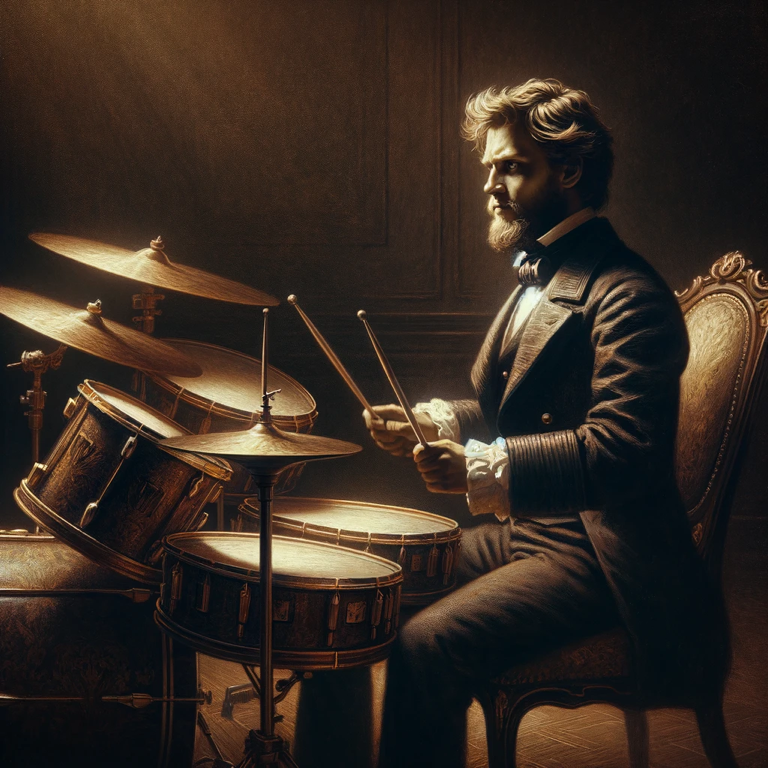
But what about the frontman? Enter Liszt. This dude was the rock star of the Romantic era, making women swoon and men jealous. Imagine him with a mic stand, belting out ballads and anthems with a voice that could make angels weep. He'd be the heart and soul of the band, a lead singer with the chops to turn every lyric into a confession and every chorus into a revolution.
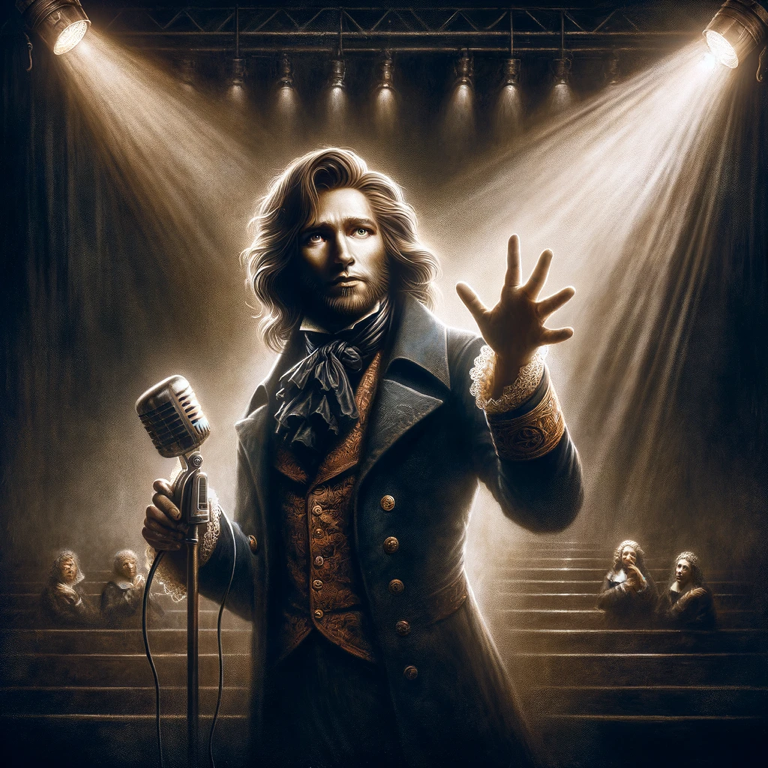
Now, let's get real. This isn't about resurrecting dusty old museum pieces. It's about the spirit of innovation that these guys embodied. They were the disruptors of their day, pushing boundaries and pissing off the establishment. If they were around now, they wouldn't be sitting quietly in some conservatory. They'd be at the cutting edge, blending their genius with the latest tech to create sounds that would bend genres and blow minds.
Imagine their album drops. You'd expect some highbrow, esoteric stuff, right? Wrong. This would be the kind of music that kicks you in the chest, grabs you by the soul, and doesn't let go. Beethoven’s symphonies would transform into bass-driven behemoths, the kind of tracks that you feel in your bones. Mozart’s operas? They'd be reborn as epic rock operas, with guitar solos that tell a story better than words ever could.
Tchaikovsky's ballet scores would become the backdrop for the most epic drum solos known to man, and Liszt’s piano concertos would morph into power ballads that would have the whole world singing along. This wouldn't just be music; it would be a cultural moment, the kind that defines an era.
Their concerts would be the stuff of legend. Picture it: the lights go down, the crowd is buzzing, and then—boom!—the stage explodes with sound. Beethoven’s brooding intensity, Mozart’s playful genius, Tchaikovsky’s soul-stirring power, and Liszt’s heart-wrenching melodies, all wrapped up in a show that would leave you breathless. It would be like traveling through time, from the courts of Vienna to the arenas of today, all in the span of a power chord.
And it’s not just about the music. These guys would be everywhere—reality shows, podcasts, social media. Beethoven throwing shade on Twitter, Mozart’s TikTok duets with Billie Eilish, Tchaikovsky’s behind-the-scenes YouTube channel, and Liszt’s Instagram feed full of selfies with celebs. They'd be influencers with a cause, using their platform to rally for arts education and bringing classical music to the streets and into the 21st century with a vengeance.
They’d collaborate with the likes of Kanye, Beyoncé, and the Foo Fighters, bridging centuries and styles. Imagine Beethoven and Kanye dropping a track that's half symphony, half rap anthem, or Liszt and Lady Gaga creating the most dramatic piano duet ever performed, breaking the internet in the process.
But it's not just about the hype. These guys would challenge what music could be. They'd push us to explore the spaces between the notes, the silence between the beats, and the emotion behind the tech. Their music would be a dialogue spanning ages, a conversation between the past and the present, proving that real art is timeless and boundless.
The point is, these guys were the original rock stars. They didn't just play music; they lived it, they breathed it, and they sure as hell changed the world with it. Now imagine if they were here, in our digital, hyper-connected world. They wouldn't just fit in; they'd turn the whole damn thing upside down and inside out.
So, as you sit there with your earbuds in, streaming the latest hit, take a second to imagine. Imagine if history's greatest musicians were part of today’s lineup. It’s a wild thought. But in a world that's seen everything, maybe the most unexpected twist is looking back and realizing that the future of music might just have its roots in the past.
And that's the beauty of “imagine”—it's not just a word; it's a gateway to infinite possibilities. It's the first note in a symphony of "what ifs." So, imagine hard, laugh at the improbability, but don't forget to listen closely because sometimes the most insane ideas have a way of becoming the most incredible realities.
